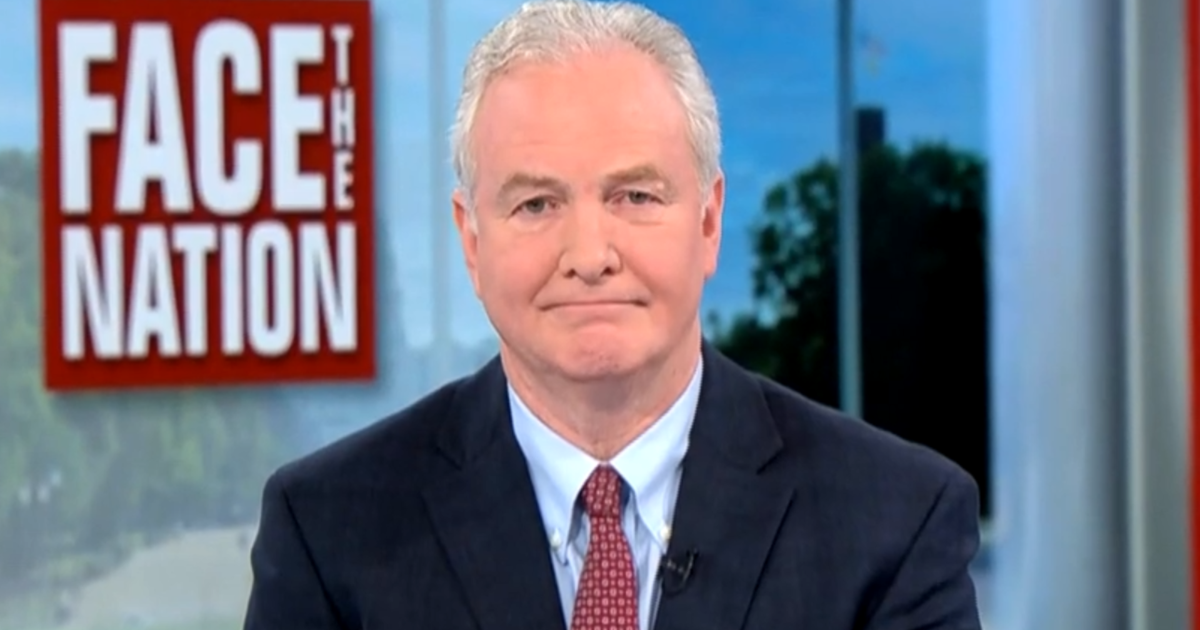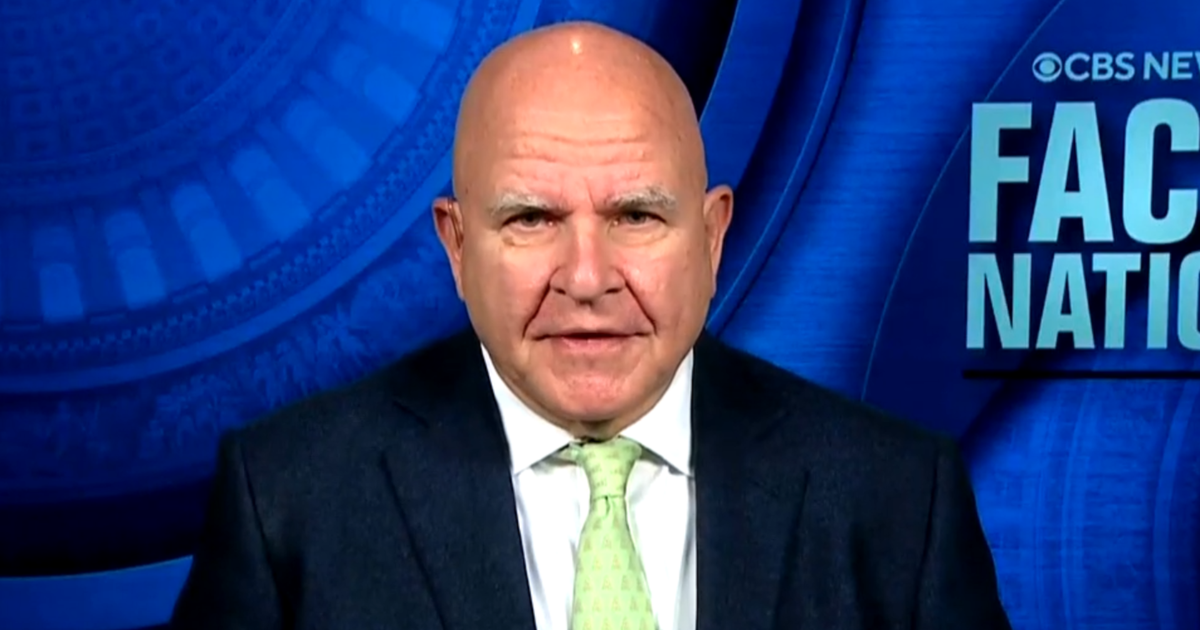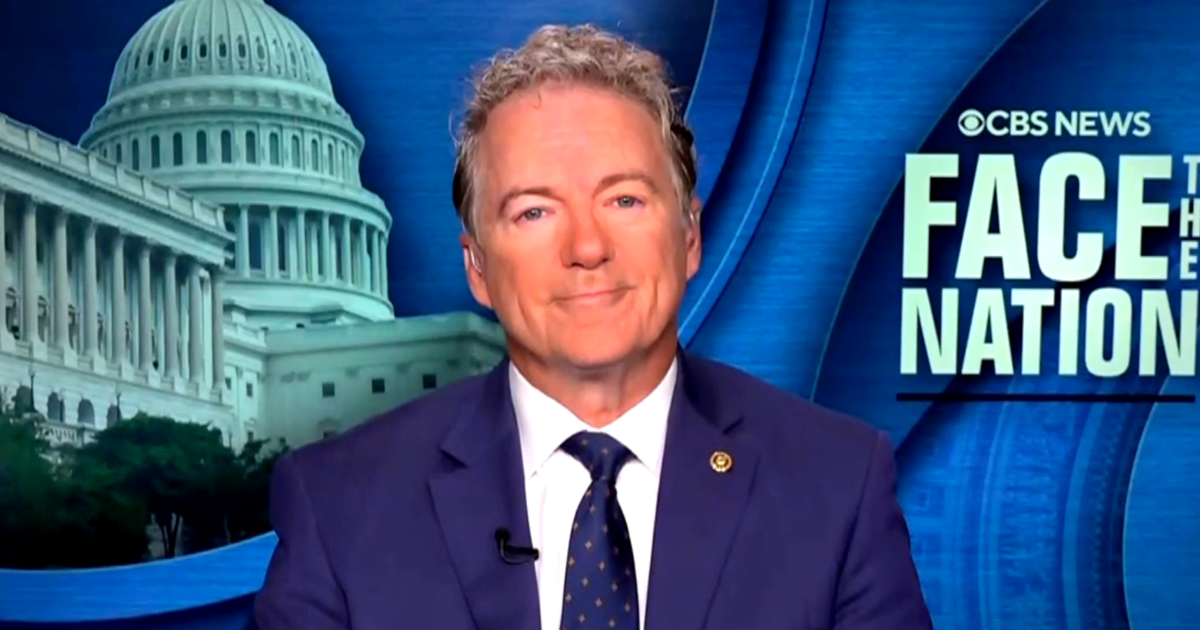Transcript: OMB Director Mick Mulvaney on "Face the Nation," Nov. 19, 2017
The House of Representatives passed its version of a tax overhaul bill Thursday, marking another milestone in the GOP's quest to get a tax reform bill to the president's desk by the end of the year. The debate now moves to the Senate.
"Face the Nation" sat down on Sunday with Mick Mulvaney, the director of the Office of Management and Budget, to discuss the White House's push to settle tax reform before 2018.
What follows is a transcript of the interview, which aired Sunday, Nov. 19, 2017, on "Face the Nation."
JOHN DICKERSON: And we're back with Mick Mulvaney, the director of the White House Office of Management and Budget. Mr. Director, I want to start with the individual mandate. That's something the president wants. It's in the bill now, in part in the Senate to just make the numbers add up. If it was taken out, would the president be okay with maybe cutting that corporate rate to 22% not all the way down to 20% to make up that money that they need in the Senate?
MICK MULVANEY: No, I don't think so. I don't think anybody doubts where the president is on repeal and replace. The White House would love to see Obamacare taken apart all at once, bit by bit, however we can do it. That being said, there's a couple of things that the president has been very clear on from the very beginning.
Number one, the middle class, ordinary Americans, working folks, have to pay less and it has to be simpler. And number two, that corporate tax rate has to be as low as possible. Originally, he wanted it at 15%. We agreed with the House and the Senate leadership to go to 20% as part of the early discussions here, and I don't think you'll see us interested in going above 20%.
So, I think at the end of the day, John, what we're interested in is the best tax bill that can pass. If a good tax bill can pass with that Obamacare mandate repeal as part of it, great. If it needs to come out in order for that good tax bill to pass, we can live with that as well.
JOHN DICKERSON: Let me look at those two things, middle class tax cut and corporate tax. There's no question, as you've said, the president wants it at 20. No one has ever doubted whether corporations are going to get that reduction to 20 really in all the conversation I've seen.
On the middle class side, though, it's a lot fuzzier. It used to be that proponents would say, "Everybody in the middle class is going to get a tax cut," but now the Joint Committee on Taxation has shown that about 14 million, because of the sunset provisions in the Senate side, they're not going to get a tax cut. Their taxes are going to go up.
So, it seems when you look at the way this has played out, corporations are so solid, nobody's saying they're not going to get what they're going to get, but the middle class, it's not so solid. It's awfully fuzzy. Isn't that the reverse of what elected Donald Trump to the presidency?
MICK MULVANEY:I think what you're seeing there is you're sort of scratching the surface. And welcome to sort of my world. This is the world the Office of Management and Budget deals with. You're now dealing with the world of Senate scoring. And keep in mind, go back to the beginning of this process, and one of the big things that happened was that since the House and the Senate passed the same budget, they're allowed to use reconciliation to pass this bill in the Senate with only 50 votes.
In order to do that, we give a great deal of control to the Congressional Budget Office, and they have to say it scores a certain way. The only reason, the only reason John, that you're seeing these- the middle class tax cut supposedly expire after five years, or part of it at least, is to score it in a certain fashion. So, you sort of take this round peg and try and shove it into a square hole. No one really wants those things to happen, and we think if it's good policy it becomes permanent, just like most of the Bush tax cuts did.
JOHN DICKERSON: I want to talk about it on the other side, because those rules are in place for a reason, but we've got to take a break. We'll be- we'll have more with Mick Mulvaney when we come back. Stay with us.
JOHN DICKERSON: Welcome back to Face the Nation and more of our conversation with White House budget director Mick Mulvaney. Mr. Director, I want to just button up on that point about those arcane Senate rules.
MICK MULVANEY: Sure.
JOHN DICKERSON: Those are in place though to force budget discipline and so that people don't say, "Let's get a lot of tax cuts and blow a big hole in the deficit," which is one of the huge knocks against this tax cut. It's size of the debt, that it's going to increase.
MICK MULVANEY: They are, but they're also written in 1974, haven't been changed, I don't think at all, since then. And it's just very difficult to do, John. It's very difficult to model a $20 trillion American economy. It's very difficult to even make the argument that if I sold 100 of these cups last year at $5, then I would lower the price to $4 this year, that I won't sell any more of them. That's what this C.B.O. scoring does. So, it is an arcane system. We think it's broken and doesn't reflect the real world, but we have to play by those rules because they're there.
JOHN DICKERSON: Also, people are saying, and I think you suggested this before the break, that essentially if people like the tax cuts, they're going you know they're going to get continued.
MICK MULVANEY: Sure.
JOHN DICKERSON: A future Congress will do this. But isn't that slightly dishonest because you're basically hoping, I'm not saying you, I'm saying in this general argument, you're basically saying, "These are going to continue. Just trust us." And also the budgets impacts on the deficit again, which you know, has an effect on the economy, those are not being taken into account, but you're assuming that these tax cuts are going to continue.
MICK MULVANEY: Listen, if the Senate rules were different, then everything in this would be permanent, or as permanent as anything is in Washington D.C. Clearly, a new government could come in and change the law. But go back to the example of the Bush tax cuts, which were supposedly temporary when they got passed.
They worked. People liked them and they became permanent law, or at least most of them did, which is where we are today. So, again, I wouldn't confuse things that we do to try and shoehorn into the Senate rules with what we think is the best possible policy.
JOHN DICKERSON: Well of course, there's a lot of debate about the Bush tax cuts, but let me ask you this question. The tax cuts are built on an idea that corporations, once their tax rates are reduced, that they will pass it on essentially to middle class people.
Gary Cohn, the White House economic advisor, was at a CEO meeting the Wall Street Journal hosted. And the audience of CEOs were asked, "Are you going to take these tax cuts and create more American jobs?" And so, they wanted a show of hands. The hands did not shoot to the ceiling. And Mr. Cohn actually noted that more people- this is the central premise of how this thing's going to work and there's a lot of doubt about that.
MICK MULVANEY: Yeah, I asked Gary about that afterwards. And my guess is, if I'm a Fortune 500 CEO, I'm not going to tell my competitors, who are sitting in the aisle next to me, what I'm going to do next year. They're going to do what's in their best interest.
And what we think is in their best interest is to invest here because not only will the tax rates be lower, but they're going to be able to expense all of their capital expenses. So, every new machine that they buy, every new factory that they build, they'll be able to write off immediately against their taxes.
This is a tremendous incentive, not only for folks not to leave the country in the first place, but for folks who have left to come back. And that's what we think is so important in reestablishing the connection between corporate success and the success of the ordinary family. You go back over the 70 years before 2008, every time a corporation's profits went up 1%, average household income went up by 1%. Since then, corporate taxes are up, I think, 11%, and household incomes are up 0.3%. We need to reestablish that connection so that when companies do well, families do well.
JOHN DICKERSON: So, people who are going to see their taxes maybe go up if this tax cut doesn't last, they've just got to hope the economy turns out and behaves the wanna you want. But even Senator Johnson from Wisconsin, a Republican, said on CNN, "Well, what I want to see is the information to prove the economic growth we are going to get." So, even he's skeptical. A Republican who is a big fan of a lot of this bill is skeptical about this central theory that's at the heart of it.
MICK MULVANEY: Yeah, I think Senator Johnson has sort of honed in one thing that we knew was sort of the last big substantive piece of the puzzle, and that's how do you deal with these pass-through entities, S-corporations, LLCs, and partnerships. They're taxed differently than C-corporations. And they're taxed at the individual level.
So, when you start to lower the corporate tax rate, it's arguably putting S-corporations at a disadvantage. And that needs to be worked out. So, Senator Johnson has hit on this. It needs to get fixed, but I'm absolutely comfortable that it will be.
JOHN DICKERSON: But it's going to cost money if it is.
MICK MULVANEY: It doesn't cost money to let people keep more of their own money. It costs money to spend money you don't have, but that's another issue.
JOHN DICKERSON: All right. Thanks so much for being with us, and we'll be right back with our political panel.



